1. You Can Work Anywhere and Make a Fortune Instantly
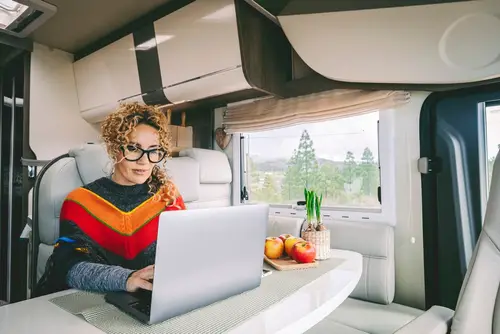
Many first-timers believe that being nomadic automatically means they can start working online and instantly replace a full-time salary. The truth is that building a remote income takes months, sometimes years, of consistent effort and networking. Freelance platforms are saturated, and clients often prefer experienced professionals. Expecting quick riches can lead to debt or burnout before you even get comfortable.
Even if you land a remote gig quickly, the pay might be inconsistent at first. Nomadic work often comes in waves—some months are booming, and others barely cover essentials. Planning a financial cushion before hitting the road is crucial. Otherwise, that dream of instant freedom can quickly turn into a stress-filled reality.
2. Nomadic Life is Cheap
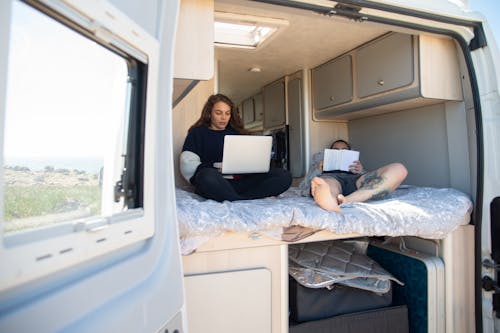
It’s easy to assume that living out of a backpack and avoiding rent will save you a ton. While some costs like utilities disappear, travel itself is rarely cheap. Airfare, insurance, visa fees, and frequent gear replacement add up fast. Not budgeting for these hidden costs can quickly drain a first-timer’s account.
Food and entertainment expenses vary wildly depending on location, and “cheap countries” can still be expensive for certain lifestyles. Hostel hopping can feel fun, but nightly fees accumulate surprisingly fast. Even savvy travelers often underestimate local transport or co-working costs. Treating this as a true lifestyle budget, not a vacation, is essential.
3. You Don’t Need Health Insurance Abroad

Some nomads think they can skip insurance because emergencies are “rare” or local healthcare is cheap. Unfortunately, a single accident or illness abroad can wipe out savings instantly. Health systems vary dramatically from country to country, and not all emergencies are affordable. Even countries with low-cost healthcare may require upfront payments or exclude foreign visitors from coverage.
Additionally, many travel insurance policies require prepayment for claims. Without coverage, you might have to pay out-of-pocket and then seek reimbursement. Insurance isn’t just about emergencies—it’s peace of mind for ongoing health care. Skipping it is a risk that could literally cost you everything.
4. Traveling Slowly Means You’ll Save Money
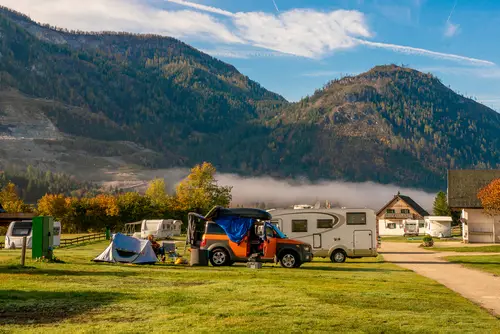
First-time nomads are often told, “Move slowly; it’s cheaper!” The reality is nuanced. Staying longer in one place can reduce transport costs, but monthly rent, groceries, and local bills still add up. A week in a remote village might be dirt cheap, but staying a month in a major city can be surprisingly expensive.
Plus, slow travel often tempts people to explore local attractions, eat out more, and pick up hobbies—all hidden costs. Even small daily expenses multiply when you’re living abroad. Without careful planning, moving slowly can quietly drain your budget faster than a whirlwind tour. The myth only holds if you’re extremely disciplined.
5. You’ll Always Find Cheap Wi-Fi
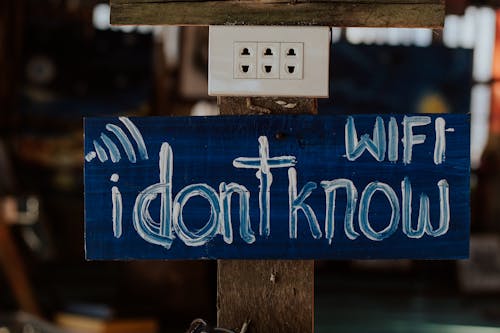
The “Wi-Fi everywhere” myth is a dangerous one for digital nomads. Coffee shops and hostels often promise strong connections, but the reality is patchy service, strict bandwidth limits, or outages. Certain countries have strict regulations or frequent blackouts that interrupt work. Relying on inconsistent Wi-Fi can sabotage productivity and income.
Having a backup plan is crucial: local SIM cards, portable hotspots, or co-working spaces with guaranteed connectivity. Testing your internet before committing to a month-long stay prevents disasters. First-timers often underestimate how much work depends on stable internet. Even a small glitch can cost hours—or clients.
6. All Nomads Are Financially Free
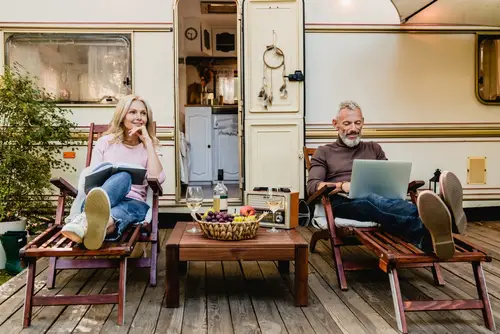
It’s easy to romanticize the lifestyle: “Look at them, traveling without a care!” In reality, many nomads are hustling constantly to cover rent, insurance, and flights. Freedom doesn’t mean zero responsibility—it often means juggling multiple income streams and constant budgeting. Many end up working odd jobs or cutting corners just to stay afloat.
Financial freedom takes planning, discipline, and sometimes years of savings. What people see on social media is usually the highlight reel. Behind the scenes are spreadsheets, side hustles, and budgeting struggles. Believing otherwise sets up unrealistic expectations.
7. You Can Avoid Taxes
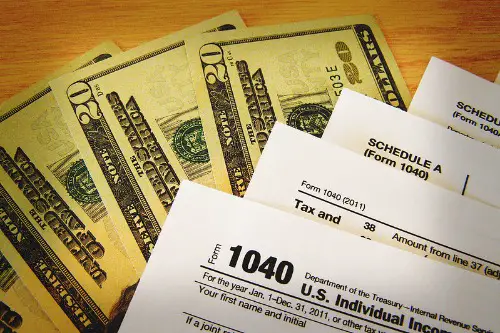
Some nomads assume that being “constantly on the move” exempts them from taxes. In truth, most countries still tax citizens based on income, even if you earn abroad. Residency laws, double taxation agreements, and foreign income reporting can make things complicated. Ignoring tax obligations can lead to hefty fines or legal issues down the road.
First-timers often overlook the paperwork until it becomes a real problem. Professional advice or thorough research is necessary before quitting your home base. The nomadic lifestyle doesn’t erase legal responsibilities. Budgeting for taxes is part of being truly independent on the road.
8. You Don’t Need a Routine
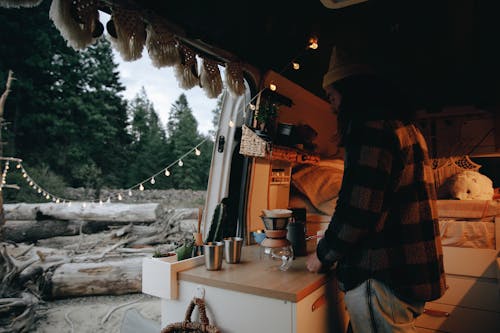
Nomads often picture waking up to sunsets and beaches every day without schedules. While appealing, complete lack of routine can destroy productivity. Deadlines, income streams, and even self-care demand some structure. First-timers who rely solely on spontaneity often find themselves stressed and burned out.
Establishing mini routines—work blocks, meal times, exercise—helps balance adventure with responsibilities. Flexibility is part of the lifestyle, but chaos isn’t sustainable. Small habits go a long way in keeping work and life aligned. Nomadic life requires discipline disguised as freedom.
9. Hostel Life is Always Social and Fun

Many assume every hostel will be a buzzing social hub. The truth is, experiences vary widely; some are quiet, overcrowded, or even stressful. Noise, hygiene issues, and roommate conflicts are common realities. Relying on hostels for friendship can be disappointing.
Making connections often requires proactive effort: joining tours, co-working spaces, or local events. Social media and online communities can also help bridge the gap. First-time nomads often overestimate how naturally they’ll meet people. Expectation versus reality can impact both finances and morale.
10. You Can Travel Without Backups

New nomads sometimes think, “I’ll figure it out if something goes wrong.” Losing your passport, laptop, or money abroad is a nightmare without proper preparation. Backups—digital, financial, and logistical—are essential. Not having contingency plans can turn minor setbacks into major crises.
Cloud storage, extra cash, and photocopies of documents are simple safeguards. Planning emergency funds in multiple locations reduces stress. First-timers often underestimate how vulnerable they are when far from home. Nomadic life rewards foresight, not improvisation.
11. You Won’t Need Friends or Family Support

Some envision cutting ties completely and drifting freely. While independence is empowering, emotional and financial support networks are crucial. Unexpected challenges—illness, theft, or financial gaps—are easier to handle with a safety net. Ignoring connections can make life lonelier and riskier than anticipated.
Even minimal contact with friends or family can provide advice, housing options, or temporary funds. Maintaining relationships remotely is both possible and protective. First-timers often think they must “go it alone,” but smart nomads keep ties alive. Community is a hidden currency on the road.
12. You’ll Figure Out Everything On the Go

The “wing it” mentality is glorified in social media posts. In reality, lack of planning often leads to overspending, missed deadlines, or unsafe situations. Flights, visas, insurance, and living costs all require research. Expecting to improvise everything is a fast track to stress and financial trouble.
Even experienced nomads plan logistics months in advance. Researching accommodations, transport, and cost-of-living prevents unpleasant surprises. First-timers who rely purely on spontaneity often hit walls quickly. A flexible but informed plan is the real key to success.
This post 12 Nomadic Living Myths That Keep First-Timers Broke was first published on Greenhouse Black.
